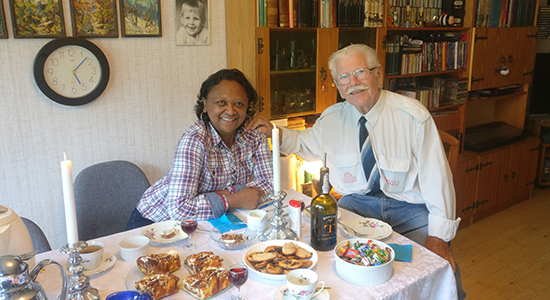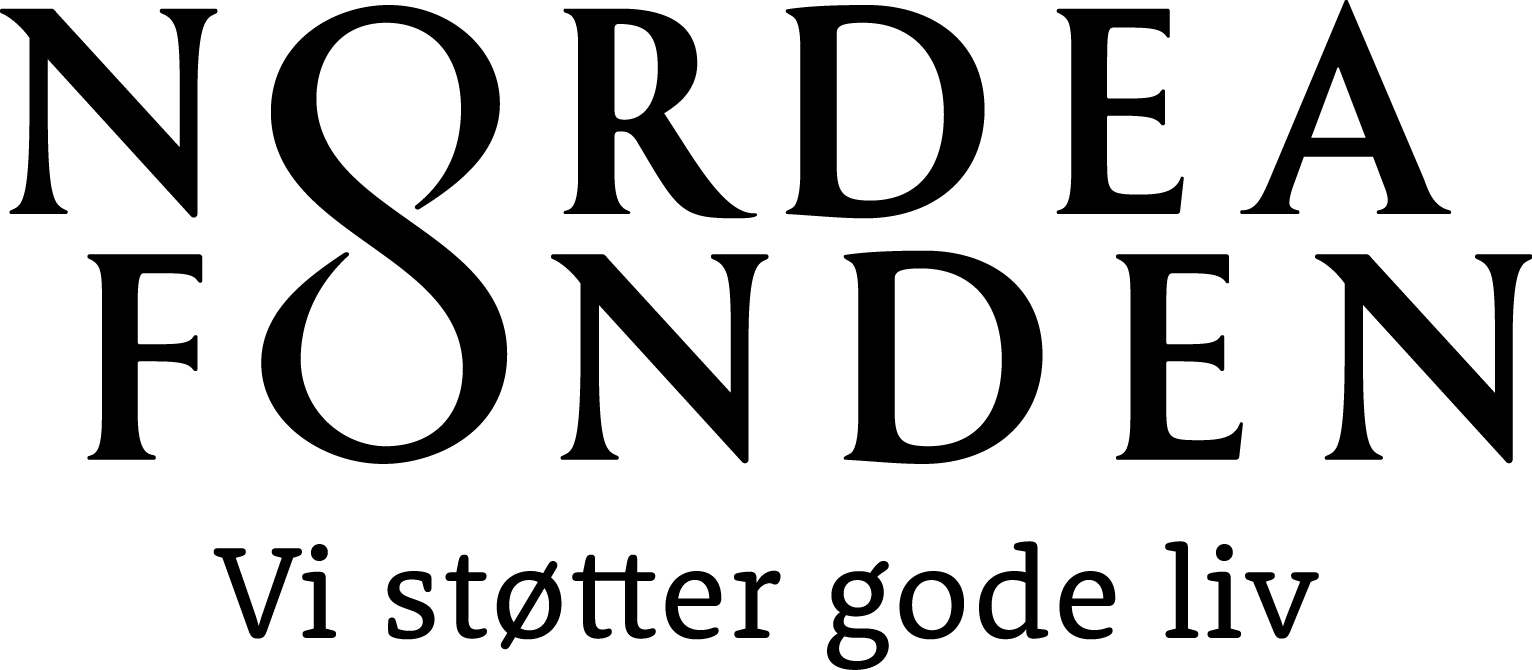A qualitative study of the opportunities and challenges associated with disseminating and upscaling a social volunteering scheme for senior citizens and foreigners
Volunteering for all senior citizens - accompanying research
This research focused on the Volunteering for all senior citizens project, which was collaboratively developed by the Copenhagen Centre for Health Research in the Humanities (CoRe), the socioeconomic enterprise Elderlearn and the association Danish Seniors with funding from the independent Danish philanthropic foundation Nordea-fonden.

The purpose of the project is to give even more senior citizens in the municipalities of Denmark the opportunity to participate in Elderlearn’s volunteer work. Elderlearn arranges meetings and thus fosters conversations between volunteer senior citizens and volunteer foreigners who want to improve their Danish language skills.
Through ethnographic methods, this research examines how the voluntary offer can be used by even debilitated elders and retain quality, when it is upscaled to many of the country´s municipalities.
On a daily basis, Elderlearn works with fighting loneliness among weakened elderly people, by establishing contact between the elderly people and foreigners, who learn danish.
Through the conversations, meaningful relationships are created and gives the weakened elderly person an opportunity to help others and be a resource for society through volunteer work.
The main purpose of the project is to give all elderly people access to be a volunteer by bringing voluntary work home to them. The project focuses on the elderly all over the country and in particular in the rural areas.
The research examines, whether Elderlearns´ services still work for the weakest elderly even when the project is scaled up and carried out without the participation of an employee or volunteer in the first meeting between the two parties.
More specifically, the focus is on the monitoring of elderly people who receive help at home and assess whether, they receive the support, they need to participate as volunteers.
The purpose of CoRe´s accompanying research is:
- Investigate the possible implications for the participants when Elderlearn is being upscaled.
- Examine whether the method Danske Seniorer and Elderlearn have developed to create security without an employee attending the first meeting, has the potential to activate and retain even weak elderly people.
The study is conducted through qualitative ethnographic methods. We conduct in-depth interviews and participant observations with 20 matched couples - both elderly and foreigners as well as expert interviews with relevant local authorities. We follow the newly started couples overtime to investigate how and whether, they are getting off to a good start and establishing a good social relationship.
CoRe has previously collaborated with Elderlearn and carried out accompanying research in the start-up of Elderlearn, where the collaboration provided crucial insights on how Elderlearn could be improved and developed.
Read more about earlier accompanying research (in Danish)
Read the report: ”Elderlearn - Når svækkede ældre mennesker bliver frivillige” from 2019.
The accompanying research provides knowledge and insights to improve the project. The main product of the research is a communication report and a research article.
The report will be shared on Danske Seniorers, Elderlearns and CoRe’s website and Facebook, as well as sent to all senior managers in Danish municipalities, Danske Seniorers member clubs and relevant politicians.
Besides, CoRe will communicate insights from the accompanying research via presentations at national and international conferences.
Researchers
| Name | Title | Phone | |
|---|---|---|---|
| Jespersen, Astrid Pernille | Professor |
Funded by

Period: 14/8 2020 - 13/8 2021.
PI: Astrid Pernille Jespersen
